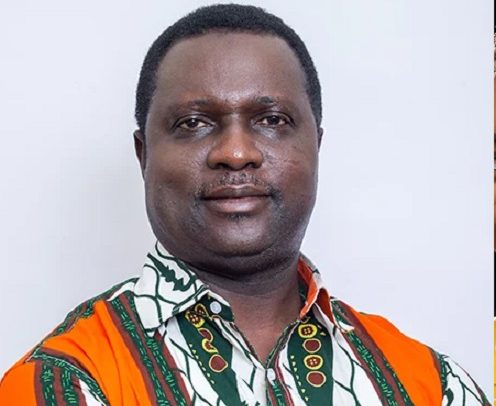Ashanti Clergy Embraces Education Reform
“I’m so happy that I’ve been given this opportunity, and I’ll say opportunity of a lifetime, to address the largest group of clergy I’ve ever met,” the minister said.
- Advertisement -
Members of the clergy in the Ashanti Region have praised ongoing educational reform and promised to fully back the government’s initiatives to transform the educational system.
At a stakeholder’s engagement on educational reforms held in Kumasi yesterday, about 300 leaders from various Christian denominations gathered to discuss the critical role education plays in shaping the nation’s future.
- Advertisement -
Prominent among them were Most Rev. Prof. Daniel Yinkah Sarfo, Archbishop Emeritus of the Anglican Church; Archbishop Dr. Divine Agyemang Badu, President of the International Council of Churches and Ministers of Great Britain; Rev. Msgr. Luis Tuffuor, Vicar General of the Catholic Archdiocese of Kumasi.
- Advertisement -
Also present were Rev. Samuel Adu-Gyamfi of the Asante Presbytery of the Presbyterian Church of Ghana; Apostle Emmanuel Kwame Asiwa of Christ Apostolic Church International; Rt. Rev. Sampson Obeng Adjei of the Methodist Church; Bishop Dr. Divine Adjei of Calvary Life International and Rev. Edward Nsiah Karikari among others.
The clergymen commended the Free Senior High School (SHS) policy, which they said had expanded access to secondary education for all as well as the curriculum reforms that emphasise critical thinking, creativity, and problem-solving.
They also expressed joy at the upgrading of school facilities and resources.
This was after the Minister of Education, Dr. Yaw Osei Adutwum, had made a presentation, sharing his reflections on Ghana’s education reforms since 2017 and calling for a shift away from divisive politics.
He expressed his excitement at being given a “lifetime opportunity” to address the largest gathering of clergy in the country, urging both the clergy and the nation to focus on the tangible progress being made in the education sector including the introduction of Free SHS, the advancement of STEM education, and the transformation of public school infrastructure.
“I’m so happy that I’ve been given this opportunity, and I’ll say opportunity of a lifetime, to address the largest group of clergy I’ve ever met,” the minister said.
Divisive Politics
Reflecting on the often divisive nature of politics, the minister acknowledged that politicians can be their “own worst enemies,” and criticised what he termed “slash-and-burn politics.”
He urged Ghanaians to move past the negative rhetoric that political parties often use against each other.
“I want Ghanaians to come to a time when we put an end to the politics of slash and burn. Let’s have the politician tell us what they have done, not what their opponent did not do,” he intimated.
Free SHS
Moving away from traditional political messaging, Dr. Adutwum committed to “evidence-based communication,” focusing on what the government has delivered in education.
He highlighted the transformative impact of the Free SHS policy, which has benefited thousands of Ghanaian students since its implementation.
“Besides Free SHS, one thing Nana Addo Dankwa Akufo-Addo will be appreciated for is the transformation of public schools in Ghana, the introduction of STEM education, and the upgrading of TVET institutions,” he said.
The Education Minister lamented the state of many public schools across the country prior to the transformation, describing the widespread image of “rectangular-shaped buildings painted brown and yellow,” often in poor condition.
Infrastructure
- Advertisement -
He recounted his visit to Asem Boys’ School, the alma mater of prominent figures such as Kofi Annan and President Kufuor, which now struggles with low enrolment.
“That class, which I was happy to teach, had only five students. The teacher asked me, ‘Minister, can you help me get more students to come to my school? It is so boring to teach here’,” the Minister shared, underscoring the decline in middle-class participation in public schools.
Addressing this issue, the Minister outlined the government’s efforts to modernise school infrastructure and raise the standards of education across all levels, including kindergarten and junior high schools.
“We cannot educate 21st-century children in 19th-century buildings and expect a 21st-century outcome,” he said, pointing out that the transformation of public schools is well underway.
He highlighted new junior high schools with modern amenities such as science labs and libraries, describing the initiative as a key part of the government’s commitment to delivering high-quality education for all.
As part of the presentation, the Minister showed graphical images of modern classrooms built to replace outdated, unsuitable facilities.
The Minister’s presentation also touched on the broader goal of nurturing critical thinking among students.
Changes in Exams
He noted changes to the West African national examination system, which now includes more questions designed to assess critical thinking.
This shift, he explained, marks a transformation in the country’s examination and assessment system, which had traditionally influenced teaching methods.
“We cannot have an examination regime that determines what teachers teach or don’t teach. Teachers often teach to the test, but we need a system where students are prepared to think and innovate, not just memorise and recite,” he added.
The Minister noted that following his intervention, the questions by WAEC were revised, with 40% focusing on critical thinking.
According to him, though this change led to complaints from some parents who found the questions more difficult, it would yield long-term benefits.
“In 10 years, we will have a nation of critical thinkers, where the children who are truly bright are the ones who succeed because we emphasise critical thinking,” he said.
The Minister called on the clergy and all stakeholders to support the government’s vision of education reform.
Dr. Adutwum emphasised the importance of improving the public education system to ensure that parents no longer feel the need to borrow money to send their children to private schools.
“We want a public school environment to be the best environment you can find,” he said, reiterating his belief that Ghana is on a “trajectory of transformation” that will prepare the next generation to lead the country into the future.
Source:dailyguidentwork.com
- Advertisement -



